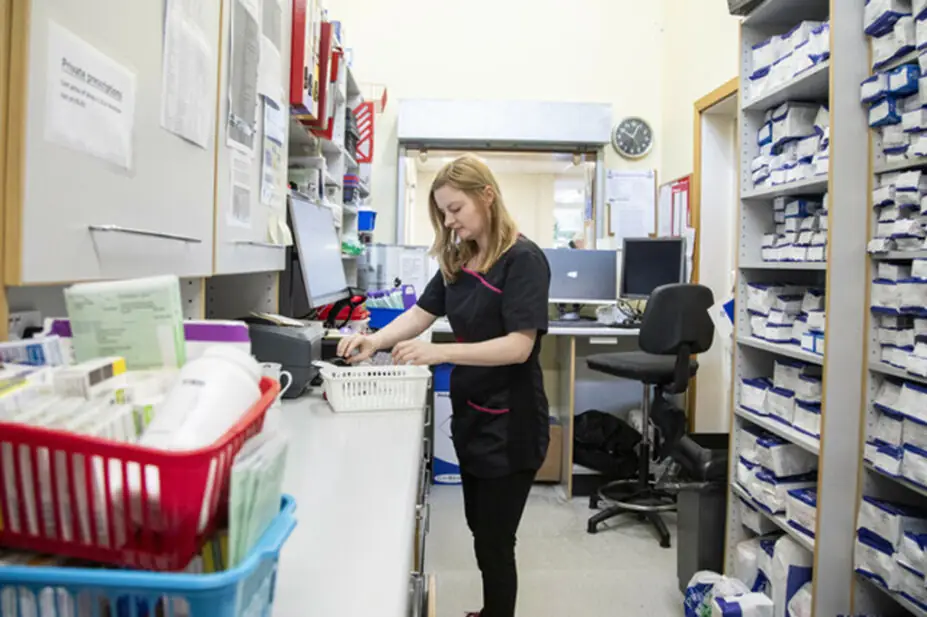
Grant Squibb/Connect Images/SCIENCE PHOTO LIBRARY
“Many student members” of the Pharmacists’ Defence Association (PDA) are struggling to access a designated prescribing practitioner (DPP), its director of pharmacy has told The Pharmaceutical Journal.
Jay Badenhorst said: “We are hearing from many student [PDA] members who are experiencing difficulties in accessing a DPP or who are struggling with the considerable costs that are sometimes required to secure one.”
He added that “many” pharmacist prescribers had reported being “pressured by their employer to become a DPP when they are concerned about time pressures and increased workload, their own ability to fulfil the role and how they would be remunerated”.
On 7 July 2025, a parliamentary written answer from health minister Karin Smyth revealed that NHS England is still in the process of understanding how many DPPs are in place to support trainee pharmacists from the end of July 2025.
Helen Morgan, Liberal Democrat MP for North Shropshire, had asked Smyth how many 2025 foundation pharmacist training places have a named DPP in the Oriel system.
Smyth responded that NHS England was “currently in the process of contacting training sites and requesting details of all supervisors, including designated supervisors and DPPs”.
Smyth also noted that while “all training posts in the National Recruitment Scheme for the 2025/2026 training year were required to declare that they would provide access to a DPP for prescribing supervision”, they only have to submit information about who that is “within 13 weeks of the trainee pharmacist starting in post”.
In response, Malcolm Harrison, chief executive of the Company Chemists’ Association, raised concerns that NHS England was “unable to confirm how many DPPs are currently available”.
Speaking to The Pharmaceutical Journal, Reena Barai, community pharmacy contractor and DPP at SG Barai Pharmacy in Sutton, Surrey, said there was a possibility that some training sites may have to withdraw over the next few weeks, as the deadline to let NHS England know details of a DPP approaches.
“The profession has had time to prepare for this and many of us, including myself, have been raising concerns about training of trainee pharmacists and the availability of DPPs,” she added.
“We can’t afford to let down the new trainees coming out of university with newfound skills.”
Martina Aikon, president of the British Pharmaceutical Students’ Association, said that if training places had to be withdrawn, this could have a “physical, mental and financial impact” on trainees.
Aikon said that foundation year pharmacists would then need to find a suitable replacement, which might require relocation to a new geographical area.
She added: “This can cause financial stress as the trainee may not have budgeted nor prepared for this move.
“Furthermore, late withdrawals may cause trainees to delay the start date for their training year which could result in them missing the cut-off period to sit the summer registration exam in the following June.
“The transition from being a pharmacy student to a foundation trainee can be a big jump; therefore, it is essential students and trainees feel they are supported and equipped with the tools and supervision they require to efficiently undergo their training year.
“Whilst we do appreciate these changes are new and full implementation will take time, we urge all stakeholders involved, including training providers and regulators, to work together and transparently to ensure access to a DPP is equitable, clear and consistently available across all sectors.”
Graham Stretch, president of the Primary Care Pharmacy Association and clinical lead for a DPP training programme, said that NHS regional teams and ICB workforce groups had been collecting local data on DPPs for several months and assisting with matching trainees to providers.
“There will doubtless be a handful of placements where last minute issues arise, my honest assessment is that there will be sufficient capacity at a national level and that the NHS England Workforce, Training and Education regional teams together with ICB [integrated care board] workforce boards will be able to manage any displaced trainees,” he added.
He said that being involved in the recent training of more than a thousand new DPPs as clinical lead for NHS-commissioned provider ProPharmace had given him “cause for optimism” about the issue.
A survey of foundation year training sites across the Black Country ICB area, conducted in 2024, revealed that more than 50% of respondents did not have a DPP in place for the 2025/2026 pharmacist trainee foundation year.
In addition, online platform and partnership coordinator DPP Connect has called for a coordinated national approach to the issue, potentially including a national DPP matchmaking service.
- This article was amended on 11 July 2025 to correct the name of NHS England Workforce, Training and Education regional teams


